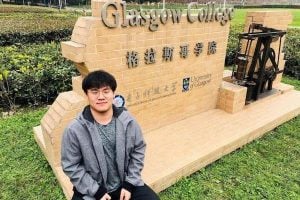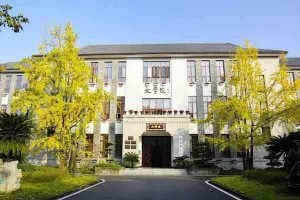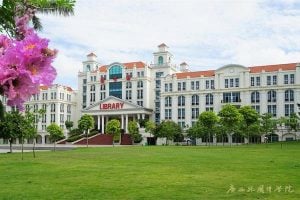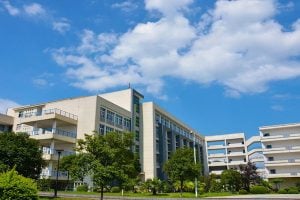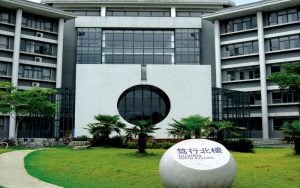
Liaoning University

![]()
Introduction to Liaoning University
Liaoning University (website) is a provincial comprehensive university with disciplines of literature, history, philosophy, economics, law, science, engineering, management, medicine and art. The school has three campuses, namely Shenyang Chongshan Campus, Shenyang Puhe Campus and Liaoyang Wusheng Campus. The school covers an area of 2,190 mu, and the school building area is 654,000 square meters. It is the key construction institution of the national “211 Project” and a world-class discipline construction university.
Liaoning University originated from the commercial special school established by the Northeast People’s Government in Shenyang in November 1948. It is the first specialized business university established by the Communist Party of China. In 1953, Northeast Commercial College merged into Dongbei University of Finance and Economics. In 1958, part of the departments of Dongbei University of Finance and Economics and Shenyang Normal University merged with Shenyang Russian College, and Liaoning University was established. Comrade Zhu De personally wrote the name of the school.
The school has 26 colleges, namely the College of Liberal Arts, the School of History, the School of Philosophy and Public Administration, the School of Economics, the School of Business, the School of Law, the School of Foreign Languages, the School of Radio, Film and Television, the School of Journalism and Communication, the School of International Relations, the School of Marxism, and Asia. Australian Business School, Xinhua International Business School, Art College, School of Mathematics, School of Physics, School of Chemistry, College of Pharmacy, College of Life Sciences, School of Environment, School of Information, School of Light Industry, School of International Education, College of Humanities and Technology, School of Public Foundation, Innovation Entrepreneurship school.
The school has 1385 full-time teachers, including 302 professors, 526 associate professors, 199 doctoral supervisors, 72 experts enjoying special government allowances from the State Council, three professors from Changjiang Scholars, one academician, and high-level national talents. There are four support programs (10,000 people plan), one effective candidate for academicians of the Chinese Academy of Engineering, eight climbing scholars in Liaoning Province, 19 special professors in Liaoning Province, and 21 winners in the “Xingliao Yingcai Project” in Liaoning Province.
The school has 72 undergraduate majors; 27 first-level master’s degree programs, with MBA (Master of Business Administration), MPA (Master of Public Administration), JM (Master of Law), MTCSOL (Master of Chinese International Education), MFA ( Master of Arts) 25 professional master’s degree programs; existing theoretical economics, applied economics, business administration, Chinese language and literature, philosophy, law, chemistry, statistics, Chinese history, physics, environmental science and engineering, and Marx 12 theoretical first-level doctoral degree programs, 8 post-doctoral mobile stations; 3 national key disciplines of world economy, national economics and finance, applied economics to the list of world-class disciplines, theoretical economics, Applied economics, law, business administration, Marxist theory, statistics, six first-level disciplines were selected into the ranks of first-class disciplines in Liaoning Province; there are national economics basic talent training bases, college counsellors training and training bases, and the Ministry of Education. Key Research Base of Humanities and Social Sciences – Economic and Political Research Center of Transitional Countries, 4 Ministry of Education Countries and Regions Research Center; The school is a national university student cultural quality education base, a national deepening innovation and entrepreneurship education reform model university, there are 2 national experimental teaching demonstration centres, 6 provincial humanities and social sciences key research bases, 5 provincial think tanks, 10 Provincial key laboratories, 5 provincial engineering technology research centres, 4 provincial engineering laboratories, 1 Liaoning Province higher education school industrial cluster synergy innovation base, 3 Liaoning Provincial Education Department Liaoning Provincial Collaborative Innovation Center, 11 A provincial experimental teaching demonstration center, a provincial virtual simulation experiment teaching center, 6 central and local co-constructed colleges and universities with characteristic superiority disciplines, 14 central financial support local university teaching experimental platforms, and 11 provincial-level college students’ off-campus practice Education Base, 1 Provincial College Student Innovation and Entrepreneurship Practice Education Base, 1 Provincial College Student Entrepreneurship Project Incubation Demonstration Base, 1 College Student Entrepreneurship Project Breeding Base, 7 Liaoning First Class Undergraduate Education Demonstration Undergraduate Programs, 24 Provinces Institutional innovation team.
As of June 2019, the school has nearly 26,000 full-time students, including 17,000 undergraduates and more than 7,300 graduate students; there are more than 1,800 international students.
The school has 39 laboratories (centres) and 208 internship bases. The total value of teaching and research equipment is 2,741,397 yuan. The public service system is relatively complete. The total area of the library is 42,000 square meters, and the collection of documents is 4.76 million copies. Among them, there are more than 300 kinds of books on ancient books. It is the “National Ancient Books Key Protection Unit” approved by the State Council and is published by the United Nations. The designated United Nations document depository library. The school has a historical museum, a natural museum, and more than 2,000 pieces of cultural relics and more than 16,000 biological specimens. The campus network is part of the China Education and Research Network and has become a regional node in the northern university of Shenyang.
Since the establishment of the school, Liaoning University has trained nearly 300,000 students for the country and trained more than 11,000 long-term international students and more than 3,700 short-term international students in 128 countries including the United States, Japan, Russia, South Korea, Italy, Britain, and France. The school has established a Confucius Institute with the National University of Irkutsk Russia, Vilnius University of Lithuania and Dakar University of Senegal. The well-established Confucius Institute brand spans Asia, Europe and Africa, and the internationalization school has entered a new era.
College of Foreign Languages
The College of Foreign Languages of Liaoning University (website) was established in May 1997. Its predecessor was the Shenyang Russian Specialist School established in 1950 and the English Department of Shenyang Normal University established in 1953. It is the oldest undergraduate teaching department in Liaoning Province.
The university has five undergraduate majors in English, Japanese, Russian, German and French; a doctoral degree in linguistics and applied linguistics; master’s degree in foreign language and literature, English language and literature, Japanese language and literature, Russian language and literature and foreign linguistics and applied linguistics two-level master’s degree; translation professional master (English, Russian) degree points.
There are 76 teachers in the college, including 62 full-time teachers, 2 doctoral supervisors, 13 professors, 18 associate professors, 31 lecturers, and 35 students studying abroad or visiting abroad.
The college has multimedia language labs, simultaneous interpretation classrooms and machine-assisted laboratories. The college’s library has 29,000 books in English, Japanese, Russian, German, French, Italian, Korean and other languages, 42 professional newspapers and magazines, and more than 2,000 professional audio-visual materials.
The college is actively engaged in foreign exchange and cooperation activities, currently with the University of North America, North Carolina University; Japan’s Toyama University, Kansai University, Waseda University, Kanagawa University, Osaka University of Technology, Kyushu International University, Chengxi International University; France Sava University, Blaze Bascar-Clermont Second University, Valentina University; Moscow State University of Moscow, National Irkutsk University, National Basquir University, National Post-Baikal University; Lithuanianville The University of New York; the University of Australia and other universities maintain long-term good cooperation in running schools and collaborations.
The college has made remarkable achievements in personnel training. Each year, many students have obtained master’s degrees from well-known universities at home and abroad. Many graduates have now become diplomats, university teachers, senior translators and foreign affairs workers, contributing to the prosperity of my foreign language career.
![]() Campus
Campus
Video
College of Foreign Languages
![]()
Teaching Program
![]() ISAC University Teaching Program
ISAC University Teaching Program






